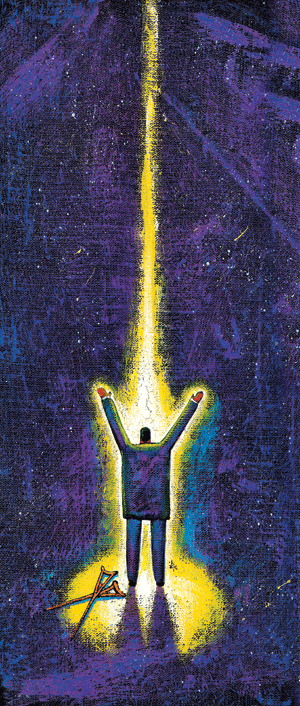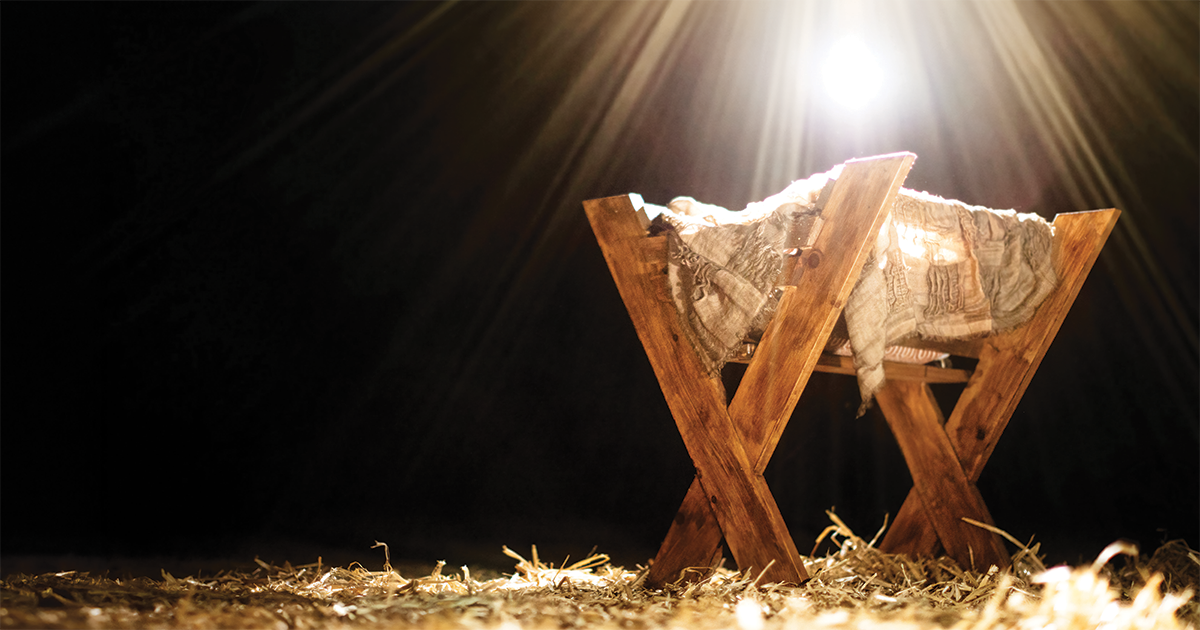 For days it had been raining and a terrible flood had come over the land. The waters rose so high that one man was forced to climb onto the roof of his house.
For days it had been raining and a terrible flood had come over the land. The waters rose so high that one man was forced to climb onto the roof of his house.
As the waters rose, a woman in a rowboat appeared and invited the stranded man to get in. “No thanks,” he replied. “I have faith in the Lord; he will rescue me.”
Next a speedboat pulled alongside the house. “Climb in!” shouted a man in the boat. “No thanks,” replied the man on the roof. “I believe in miracles; the Lord will help me.”
Finally, a helicopter appeared and, over the loudspeaker, the pilot offered to lower a rope to save the flood victim. “No thanks,” replied the man. “The Lord is omnipotent; he will save me.”
Eventually the waters rose so high that the man on the roof was washed away and, alas, he drowned. Upon arriving in Heaven, the man marched straight over to God. “Heavenly Father,” he said, “I had faith in you. I prayed to you to save me and yet you did nothing. Why didn't you miraculously intervene?” God gave him a puzzled look, and replied, “I sent you two boats and a helicopter. Just what kind of miracle were you looking for?”
No doubt you've heard some variation on this story. And while we may laugh at the man's folly, many of us have used phrases such as these: “It's a miracle he wasn't killed”; “It's a miracle I ever passed high school”; “Only a miracle will save him now”; “A coincidence is God's way of working anonymously.”
Coincidence or Providence?
I believe in miracles, but I have no idea how to prove one. How do we scientifically differentiate between mere coincidence and providence? It's not as though we can conduct case-controlled testing or replicate studies in a lab.
But I feel challenged to respond to this topic. In interviews about my 20 years as a missionary doctor in Zimbabwe I've often been quoted as saying, “I not only believe in miracles, I depend upon them every day.” Should I not be able to defend my faith and write about something I believe in?
What, then, is a miracle? Do they happen today, or is the age of miracles over?
As a starting point, I recommend C. S. Lewis' short book entitled Miracles. A reluctant convert from atheism to Christianity, C. S. Lewis approaches the question of divine intervention with a thorough examination of whether all that exists is the natural world with its unbreakable laws, or if there really is a Sovereign Creator who has the right, the intent and the interest in his creation to break in and perform miracles.
“We must decide between naturalism and supernaturalism,” he writes, “whether our universe (nature) is a democratic sum total of everything, with all events being interdependent, causal and sequential; or, that there is a Superior Being, outside nature (probably its Creator) and capable of deliberate interference in nature.”
Wonder-Working Power
In Exodus 7-14, we read of the miraculous events channeled through Moses. These astounding incidents, such as the plagues of locusts, boils and darkness, provided an example of God's power to Pharaoh.
The supernatural activities performed in Egypt and in the wilderness demonstrated that God cared about his people and was willing to go to extremes to show them his love and concern, even when they rebelled against him. The miracles were meant to turn their eyes and trust toward God.
From the Exodus account, it seems that people of antiquity expected to see something extraordinary before they would believe in God's omnipotence, such as when Pharaoh demands to see a miracle (see Exodus 7:9). This is not dissimilar to today's world, where people want proof before they will believe anything. But even when Pharaoh witnessed God's power, the supernatural events were not enough to permanently change Pharaoh's heart.
The miracles performed through Moses—the water from the rock, the manna and the quails, the plagues, the healing power of the bronze serpent—were seen and remembered by the children of Israel as a sign of God's power. But they were not enough to keep the people trusting and faithful. The same can be said for the wondrous actions performed by Elijah and Elisha.
What is a Miracle?
A miracle, in Old Testament accounts, was seen to be the demonstration of God's power and compassion. It was out of the ordinary; a display of authority that superseded what seemed humanly possible. It was not a magician's sleight of hand, though no doubt skeptics would have called it trickery.
In New Testament accounts of miracles, whether performed by Jesus or the apostles, responses varied. There was belief, skepticism, antagonism or even, in the case of the loaves and fishes, the hope of a free lunch
For me, a miracle is any event that points us in amazement to God. It will provoke awe, wonder and praise that is God-directed. The marvel may be in the timing or in the exceptionality of the event, perhaps even in a suspension of natural law. It may occur through the prayers or hands of a human, but its result should turn people's hearts toward our Creator.
In New Testament accounts of miracles, whether performed by Jesus or the apostles, responses varied. There was belief, skepticism, antagonism or even, in the case of the loaves and fishes, the hope of a free lunch. Miracles were, and still are, misinterpreted and misconstrued. John, in his Gospel, frequently suggests that Jesus' divine interventions—such as healing the blind or lame, turning water into wine, walking on water and raising Lazarus from the dead—are signs that prove Jesus is the Son of God.
The Gospel writers portray Jesus as the Lord of creation with the power to reverse the natural law of death, just as he has the authority to fulfil religious law in working on the Sabbath or forgiving sin. He is the Lord of creation and the Lord of the Sabbath, even though he chose to be subject to creation and to Jewish law in his incarnation.
Jesus knew that a miracle alone would not be enough to turn the hearts of every person to God. As he quotes Abraham in the story of the rich man and Lazarus, “If they do not listen to Moses and the Prophets, they will not be convinced even if someone rises from the dead” (Luke 16:31). It will take “more than a miracle,” wrote C. S. Lewis. “Seeing is not believing.”
Do Miracles Happen Today?
One week before Christmas 1998, my brother, Dale, was killed, along with two fellow students, in a collision with a transport truck. By a miracle, I returned home from Zimbabwe for the funeral. But why didn't a greater intervention happen, so that the three of them were not killed at all?
Three months later, my father became very ill. After two months on the edge of death in an induced coma, my mother phoned to say that I might have to come home early because he had fluid in his lungs and was in early kidney failure. I sat in my little house in Zimbabwe and prayed specifically that if I didn't need to go home immediately, God should create positive change within 24 hours. The next day, Mom phoned to say Dad was beginning to improve. Ten years later, with the help of modern “miracle” drugs, he is healthy.
Why did my father miraculously live, but not my brother? I don't have an answer for that question.
Do miracles happen today? Does God still exert his right to step in, speak his Word and re-create? I believe he does, though we will never be able to prove it scientifically. I believe a miracle happens every time Jesus rescues us from sin and creates new life within us. I believe his resurrection is the foreshadow and promise of eternal life promised to the believer who will be clothed with immortality to live forever in his presence. It comes down to faith. How about you? Do you believe in miracles?
Many people talk about volunteering to work in a developing country but most don't follow through. Major (Dr.) Dawn Howse is one of the exceptions. First as a doctor at Howard Hospital in northern Zimbabwe and then as the chief medical officer at Tshelanyemba Hospital in the southern part of the country, Dawn spent 20 years making a difference in the lives of thousands of people, providing much-needed spiritual and medical care.









Leave a Comment